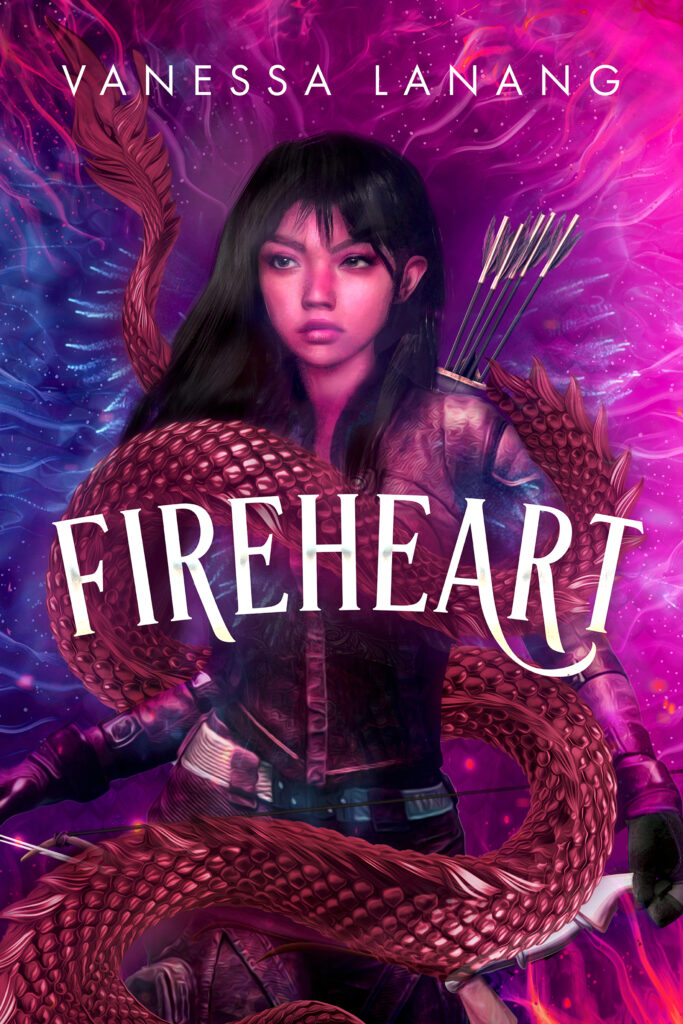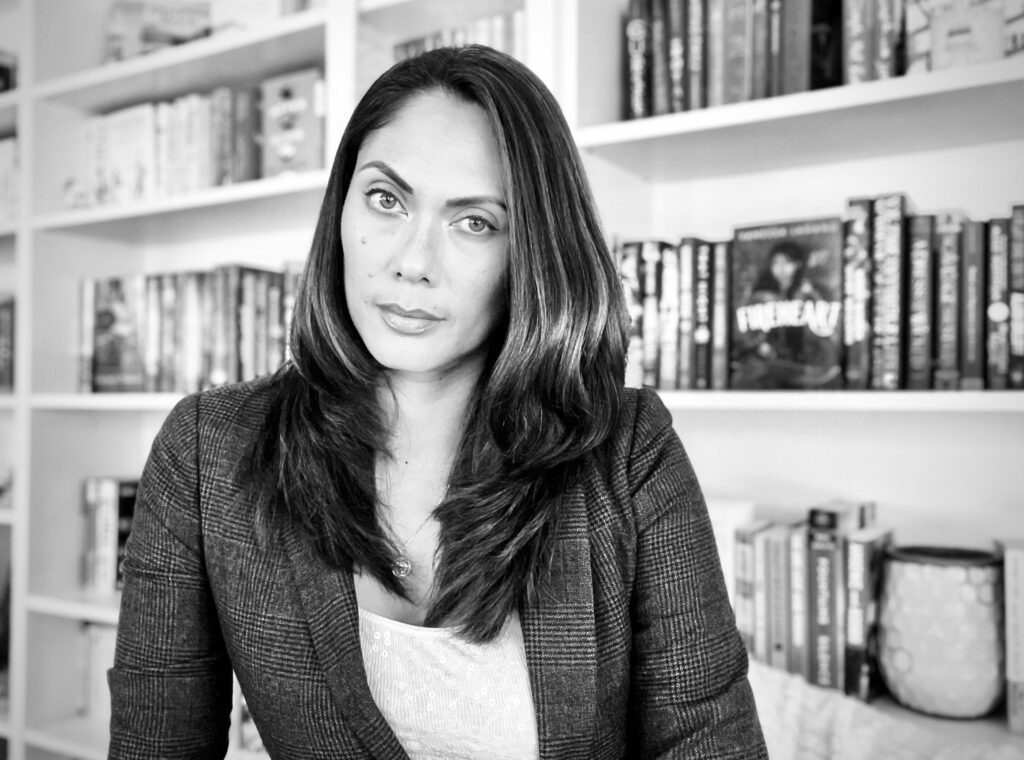

What books did you grow up reading?
I spent most of my teens reading horror. I’ve read everything by Christopher Pike (I’ve actually started collecting his trade paperbacks from the late 80s and early 90s). R.L. Stine was another one of my favorites, and I eventually moved on to adult books in my late teens, reading Anne Rice, Dean Koontz, and Stephen King. My most recent publication, Fireheart, is a YA Fantasy, but later next year I plan to put out a series of YA horror books.
What, to you, are the most important elements of good writing?
I work in independent publishing with a small press, so I get to see lots of pitches and stories that come in. One of the first things we look for is: does the story keep me turning the page? All stories need a little love in the editing department, but as a reader, we have to want to know what happens next, and we have to care about the characters. Pacing is important, as well; if a section of the story is slow or doesn’t feel like it’s moving the story forward, that can also cause a reader to disengage.
What comes first for you — the plot or the characters — and why?
When I’m drafting, I’d say the plot comes first, but only to the extent of the story arc, so I get the bare bones down. I’m a ‘plotter’ when it comes to writing; I need a road map of when certain points of the story happen. When I attempted to write my first book, I wrote it by the seat of my pants (what’s known in the writing world as a ‘pantser’), and revisions were so challenging I ended up shelving that project. Once I start getting into the story, I focus more on the characters driving the story.
How do you develop your plot and characters?
I use a beat sheet to map out my plot. When it comes to story arc, I’m very structured. When I wrote Fireheart, not only did I write an extensive beat sheet with a multiple-act structure, I also made sure there was an arc to each chapter. Each chapter had a one-line description for each of its three scenes. As far as characters, I made character sheets for each of the main characters and some of the side characters and even went as far as making a mood board on Pinterest so I’d have images of them.
How important was professional editing to your book’s development?
I think no matter where you are in your writing career, having an editor is beneficial. When you’ve spent so much time with your story, it’s hard to see where the plot doesn’t make sense, or characters aren’t consistent. I did spend a lot of time on story structure, so my editor didn’t have much feedback on that. But notes on gaps in worldbuilding made it a better book.
What do you think is the best way to improve writing skills?
The best thing you can do is just write. It sounds cliché, but practice makes perfect. Just like how an athlete must put thousands of hours into their sport, you have to put thousands of words down on paper (or, I guess your computer now, lol). Even if some of those words never get read, it’s important to keep writing.
What books helped you the most when you were writing your (first) book?
The number one book I recommend to everyone is Save the Cat. It’s based off writing beat sheets for film, but there’s a simple way movie scripts are structured that just works for pacing and character arc. Whenever I work with a new author, before we start actual edits, I ask them for a beat sheet. This makes you look at your story in a broad overview where your inciting incident is happening soon enough, and obstacles are being thrown at your main character consistently enough that propels the story forward and eventually gives the reader a satisfactory ending.
What advice would you give to a writer working on their first book?
In addition to writing often, read heavily in the genre you want to write. The more you know what’s out there, what’s been done, and what’s coming down the pipeline, you’ll be more informed in your writing for that particular reader. Also, find a critique group or other writers who’ll give you feedback. Not only will this get you used to taking notes, but you’ll also have a shoulder to cry on during the publishing process.
What’s your favorite writing snack or drink?
Now for the fun stuff! If I’m at a coffee shop, I usually order a soy latte and some type of croissant. If I’m at home, coffee is a must, and a crunchy snack like popcorn or crackers and hummus.
Have pets ever gotten in the way of your writing?
I have two cats (Buttercup and Brownie), and I’m pretty sure they have some kind of writing radar. I could be doing anything else in the house, and they’ll be on a cat perch on the window napping. But as soon as I sit down at my computer, they either try to walk across the keyboard or sit on my papers.
If you’d like to follow along on my publishing journey and hear more about my upcoming projects and appearances. You can find me most often on Instagram and sometimes on Twitter and Facebook. For more bookish and writing tips, you can sign up for my newsletter on my website at www.vanessalanang.com
Instagram: @vanessalanangauthor
Twitter: @vanessalanang
Facebook: www.facebook.com/vanessalanangbooks
Fireheart is available on Amazon and BarnesAndNoble.com